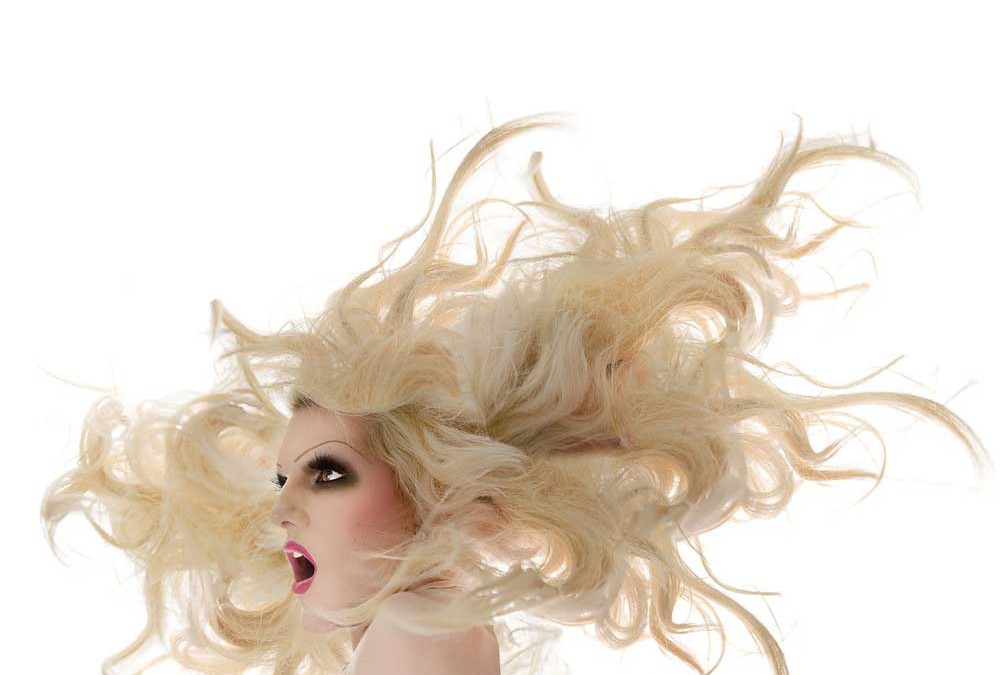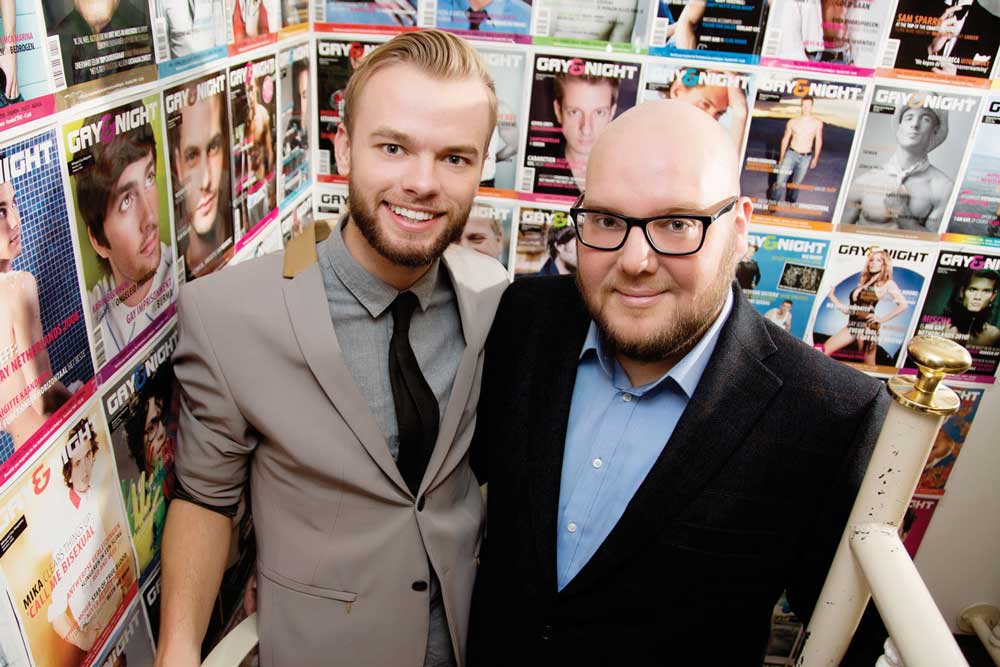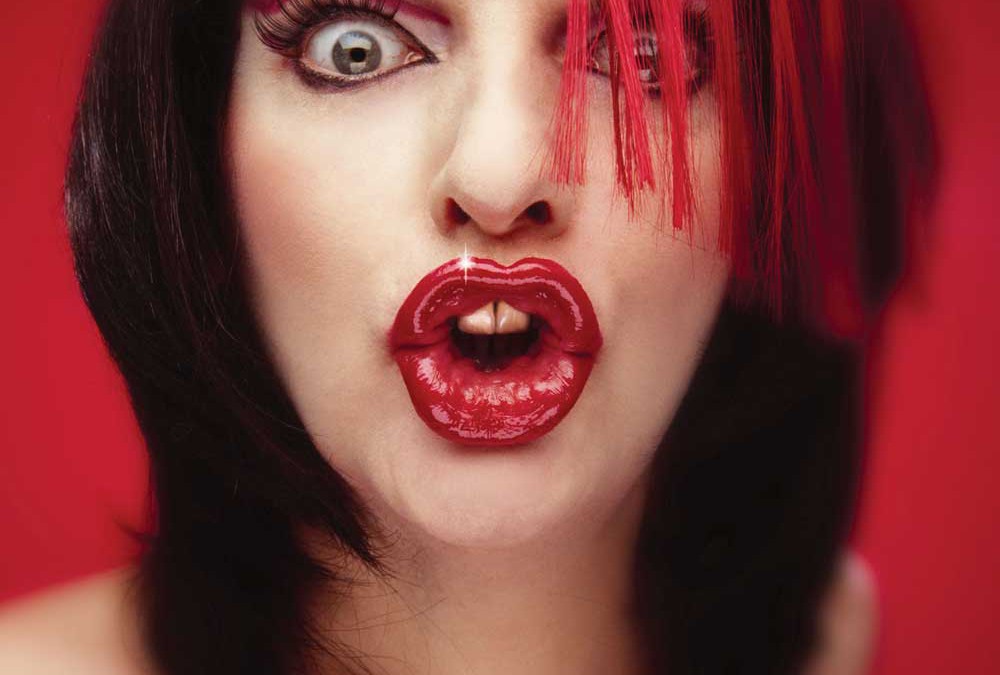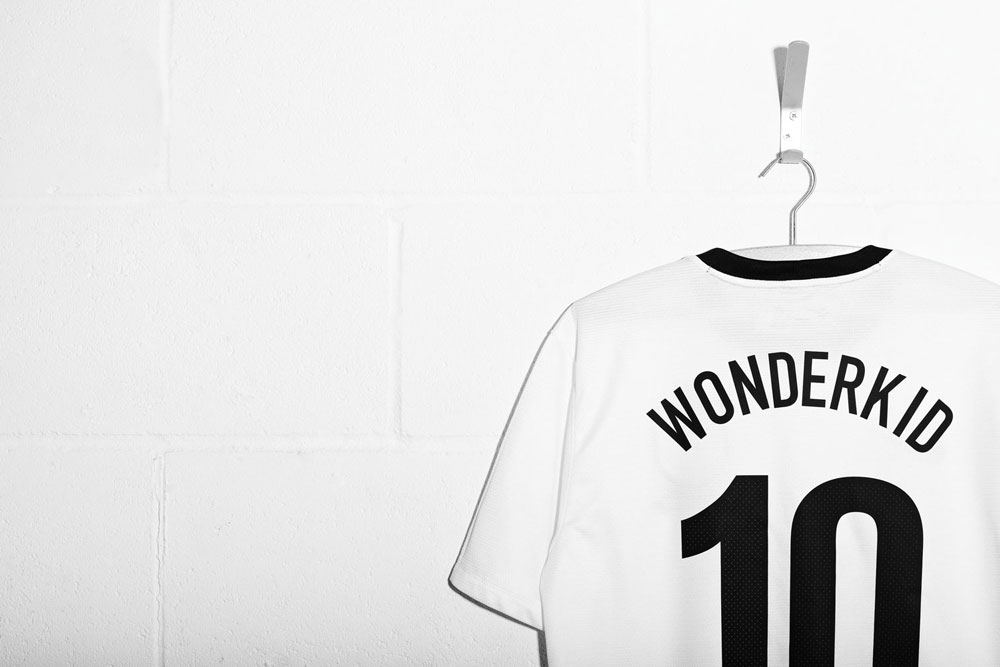In One-Man Show, Michael Schreiber chronicles the storied life, illustrious friends and lovers, and astounding adventures of Bernard Perlin through no-holds-barred interviews with the artist, candid excerpts from Perlin’s unpublished…..



Text JF. Pierets Photos Johan van Walsem
Gay&Night Magazine started off in 1997 as a one-time special during Amsterdam Gay Pride. It soon however became so popular that it evolved into a monthly glossy. Distributed for free at almost all gay meeting spots in Belgium and the Netherlands, it serves as a light-hearted guide to the gay community. Editor-in-Chief Martijn Tulp and vice editor-in-chief Martijn Kamphorst took place on our Skype sofa and we promptly nominated them as funniest Dutchmen we know. Do we have to remind you that all good things come in twos?
You just celebrated your 200th issue. That’s quite an accomplishment nowadays.
MK Isn’t it?! Martijn [Tulp – ed.] joined the club when they where about to hit issue 100. My contribution came a bit later and asked for some shenanigans; when I applied for the position they told me they already had someone named Martijn and it would be too confusing to hire another one. The next day I wrote a letter signed Henk and got invited immediately.
MT Happy ever since.
What was it like, to start at issue 100?
MT It was a good thing because the magazine still had a lot of room for improvement. Still has, now I come to think about it, yet that’s called evolution. Needless to say we still have to keep our audience attentive and inspired. The magazine is a service to the gay community, so if we at some point start to notice that people are losing interest, we’ll have to close the shop. It’s great work but hard work, and still some people ask me what’s my job besides being involved in the magazine.
You feature articles from bisexuality and women with beards, to interviews with RuPaul’s drag queens and bears. Where do you keep your balance?
MK We try to maintain a balance by featuring topics that address a variety of readers. Having said that, it’s impossible to please everyone in one issue. Sometimes our focus will be on gender or bears, and in another issue you will find more content that’s interesting for lesbian readers or clubbers.
MT Not all issues are for everyone, but by offering a wide-ranging series of articles, we’re trying to make sure everyone feels tempted to pick it up at some point. We do focus on the entire LGBT scene, but most of our readers are gay males. Sometimes it’s quite hard to serve a shattered target group, but then again it teaches you how to make choices. An attitude that most of the time leads to quality.
Are we talking about an intuitive magazine?
MT For about 90%, yet we’re trying to cover all groups to the best of our abilities.
MK And that’s obviously not always in the same way. The great thing is that as a free magazine, we feel we have the opportunity to also cover niche subjects. Of course there will always be readers who aren’t happy with certain coverage, but then again, we luckily don’t rely on paying subscribers.
MT The magazine is distributed via the gay hotspots but is also available on mainstream locations, so we can afford to be a bit teasing, a bit more experimental towards a wider audience.
As a person, in what way are you both the ‘actual’ magazine?
MT Well, the fact that there isn’t much about sports and fitness probably says a great deal about the editors. On the other hand, however, there is plenty about music, which is my point of interest… and about food! I always want to publish something about how to bake a cake! You always color the things you write or feature and we do try to keep a certain amount of distance between our personal self and the magazine. That said, you can’t avoid being dragged into it with your own preferences, and many things we write about are things that catch our attention. I myself am single so I’m active on dating sites, especially on apps for bears. When I read about pandas, polar bears, etc., I was triggered to do some research on those different denominations within the gay scene, and it turned into an article.
MK I for example wrote a feature on how Asian boys are treated within the gay scene. I was out clubbing with a bunch of friends and overheard some rather hurtful remarks about those boys. That’s when the reporter in me awakens and starts asking questions. In the beginning it was merely out of personal interest, but after a while I realized that this topic might be more than suitable for an article in our magazine.
MT A quite hefty one if you ask me, on how Thai and Chinese boys are looking for each other’s company, because they can’t find any connection outside their circle.
MK And let me tell you, I didn’t have to beg for stories. A simple ‘how are you?’, and the words came running out.
Do you consider yourselves in an educational position?
MT We’re a magazine that’s not scared to face problems. So when we hear about a topic like those Thai kids, we feel obliged to write about it. To us, it’s important to keep on looking at the big picture to remain a very accessible magazine.
MK In a positive way!
MT Indeed, and that is something we actively work on. Even when a certain subject might be considered being too niche, there are still a large amount of people who would love the fact that you’re writing about that certain phenomenon, without considering it a sensational subject. We try to treat every topic as ‘mainstream’. Same with politics. We often write about changes in the LGBT legislation and focus on making the articles very accessible for those without any political background knowledge.
MK For us it’s very important to also cover the more or less ‘heavy’ subjects with a more social approach, for example by interviewing a couple of members from a movement. I think that’s our responsibility as a magazine, to feature the more committed content next to an article on, for example, gay tourism in Tel Aviv. By doing that, we aim for readers who normally won’t immerse into the subject matter. Not by simplifying, but by making it more accessible.
Can you give an example?
MT The first thing we did when the shit hit the fan in Russia, was not making a list of what politically went wrong over there, but we looked for someone who lived there. Someone who experienced the terror by seeing his friends bashed for no particular reason. We wanted to hear the voices on the street. Sometimes – and I’m talking about the Netherlands and Flanders – we are quite easy-going about coming out of the closet or having the same human rights.
MK By telling the story of an actual person, you make the subject matter more real and in your face. Because these are the sort of things that can also happen to you.
How important is it to keep on printing a magazine like Gay&Night?
MT I’d like to keep on printing as long as possible. The way people react to printed media has gone through a lot of changes. Even newspapers experience a difficult time, because you can read everything right away on the Internet. Nevertheless it’s still very enjoyable to sit on the couch with a printed version of whatever you want to read.
MK And besides the fact that you can hold it and it ‘smells good’, you don’t have to stick to a limit of 500 words in order to not lose one’s attention.
MT Our magazine can be found in bars, clubs, saunas, restaurants and lunchrooms, so that’s a very interesting place to gain visibility. If we, as publishers, keep on succeeding in making the magazine interesting for our audience, I think we will be able to keep on printing!
I hear a lot of evolution since issue 100.
MK When you see our series of covers, you’ll notice that we started getting more and more experimental. It starts with a parade of men…
MT Cute men, if I may add.
MK …and all of a sudden we have a picture of an older lesbian woman [he’s referring to Glee-actress Jane Lynch – ed.]. In 2013 we expanded with a Flemish edition, so now we have two covers to think about. Or better yet; to play with.
MT And don’t forget that not only the tone, but also the lay-out of the magazine changed. In May 2011 we started working with our new art-director Jeroen de Rooij – we couldn’t find a third ‘Martijn’ suitable for the position. One of the compliments we hear most often is that the magazine looks too good to be free. Needless to say that makes us very proud, but credit where credit is due; design-wise, all praise goes to Jeroen.
And yet the magazine is still for free.
MK Always has, always will be. Well, I definitely hope so.
MT We know a lot of people who carry our magazine in their hearts. We work very closely with our advertisers and also the festivals and events featured in Gay&Night. They help us keep it vivid and alive. Not only gay magazines, but a lot of magazines in general recently ceased their printed editions. We are one of the few gay magazines left in the Netherlands and we try to handle that position with care. It’s what’s gained us a lot of trust from our audience throughout the years.
MK This for example entails treating our interviewees with the utmost respect and always letting them check our version of their words before we go to press.
MT We also offer cheap subscriptions for people who don’t visit gay places that often.
In One-Man Show, Michael Schreiber chronicles the storied life, illustrious friends and lovers, and astounding adventures of Bernard Perlin through no-holds-barred interviews with the artist, candid excerpts from Perlin’s unpublished…..
That’s a tough one because I don’t like to be put into a box. For me, Thirty Days is just a continuation of everything I’ve written before. I’m working on an oeuvre, which I started in 2003, and hopefully will be able to build up till the end of my days…..
Author and theatre performer Greg McGoon challenges the norm of children’s literature. By choosing a transgender princess as main character of the fairytale The Royal Heart and teaching self-acceptance in The Tanglelows, McGoon tries to…..
On the day of this interview, New York passed a civil rights law that requires all single-users restrooms to be gender neutral. A decision of great impact on the daily reality of trans people and a life-changing event for Ivan E. Coyote. The award-winning…..
Square Zair Pair is an LGBT themed children’s book about celebrating the diversity of couples in a community. The story takes place in the magical land of Hanamandoo, a place where square and round Zairs live. Zairs do all things in pairs, one…..
When 64-year-old Grace Wellbeck thinks she sees the ghost of her first husband, she fears for her sanity and worries that she’s having another breakdown. Long-buried memories come back thick and fast: from the fairground thrills of 1950s Blackpool…..
Leaving Normal: Adventures in Gender is creative nonfiction that takes an unflinching but humorous look at living as a butch woman in a pink/blue, boy-girl, M/F world. A perfect read for anyone who has ever felt different, especially those who…..
I was 20 when I read Nude Men and I instantly got hooked on the surreal imagination of this New York based writer. 21 years and 3 novels later there is The Unfortunate Importance of Beauty, and Filipacchi hasn’t lost an inch of her wit and dreamlike tale…..
Gay&Night Magazine started off in 1997 as a one-time special during Amsterdam Gay Pride. It soon however became so popular that it evolved into a monthly glossy. Distributed for free at almost all gay meeting spots in Belgium and The…..
Bart Moeyaert is internationally famous for his work as a poet, a writer, a translator, a lecturer and a screen writer. He once mentioned on television (on ‘Reyers Late’) that society is often overwhelming, that one is alone with one’s thoughts about…..
Jonathan Kemp won two awards and was shortlisted twice for his debut London Triptych. Gay bookstore Het Verschil in Antwerp, asked to interview the British author for a live audience due to the Dutch translation of his novel, ‘Olie op doek’. A…..
We meet Michael Cunningham in Brussels where he is invited as an Artist in Residence by literary organisation Het Beschrijf. Coffee, Belgian chocolates and a conversation with the Pulitzer Prize-winning author of The Hours……

Text JF. Pierets
Flashback to August 1987. The soon to be legendary club RoXY opened his doors and with house music on the up, things where destined to take a radical change. It’s reputation as a collective, creative stage of self-expression crossed beyond Holland’s borders and the club became famous for it’s excessive shows, it’s insane decorations and daring performances. In 1999, the Amsterdam based cradle of avant-garde meets extravaganza, burned down. Many who experienced the heydays of those unlimited possibilities and libertarian lifestyle talk about RoXY with great nostalgia. ‘We were one big family’ and ‘nobody was a star, we were all the same’ is most often heard. Yet there is always one voice saying ‘yeah right, but I was the biggest star!’.
We meet Zu Browka in Amsterdam in the second hand clothing shop where she works nowadays. Tall, impressive, blond and very sweet; a true bombshell. Born in a small village in Belgium, Zu discovered who she wanted to be at the age of 12: ‘I saw Amanda Lear perform ‘Follow Me’ on television and it was like everything fell into place. I thought: OK! Now I understand who I am! I’m Amanda Lear! So I followed Amanda’s example and became a very beautiful blond model myself’.
Zu first started performing in Berlin at ‘Dollywood’, former ‘Chez Romy Haag’: ‘I started my career as a showgirl, a performer in that cabaret. The place was always filled with celebrities and since Romy was a friend of David Bowie, he also became one of my biggest fans’. Haag, another eccentric underground queen, was one of the biggest names in Berlin’s underground scene. She opened her own kitsch, trashy nightclub, which was frequently visited by artists like Bette Midler, David Bowie, Freddy Mercury and Mick Jagger.
By that time Zu wanted to start her transition: ‘I almost never talk about my operation because in my opinion I’m a woman. I don’t like the word transgender because that’s too much of a box. There is too much moaning on the subject matter’. Her uncle Herman, who was a doctor, provided her with hormones yet Zu got send from one hospital to another: ‘In that time it was very difficult to have a sex change and that’s why I looked for different solutions’. Since Greece was known for easily getting hormones at the pharmacy, Zu and her best Berlin friend Zugar Moon went ahead: ‘In Greece we started taking hormones in order to commence with our transition, yet things quickly started to turn for the worse’. In Mykonos they had to escape from the island because they weren’t able to pay their hotel bill so they went underground, into the clubs and the brothels but finally got busted and spend two years in prison. ‘After two years we got released when Interpol got involved. Two years of rape and torture by the police. I’m planning on writing a book about it since things were beyond the imaginable’.
Zugar Moon returned to Berlin where she committed suicide and Zu returned to Amsterdam in ’86 after a phone call by Joost van Bellen (one of the resident dj’s and the artistic director at RoXY – red.) who told her they were about to open a new club and she could start as a performer: ‘So I became the Roxy Princess! My shows were always over the top but that’s what made me famous. I’ve been yodeling out of my pussy, pulling meters of dirty laundry out of my vagina and putting loads of whipped cream cakes in places where the sun doesn’t shine’.
The list of people Zu worked with during her RoXY days is endless and impressive. She had an instant click with Leigh Bowery, became one of Erwin Olaf’s models and gave birth to a pig in Peter Greenaway’s Prospero’s Books: ‘I have the feeling it all kind of dropped in on me. I never looked for any of this to happen but people saw me, heard about me and that resulted in all those little assignments and performances. I loved doing all those things so one thing led to another. And when I was standing on that stage, seeing people watch me with those ecstatic eyes, I thought; well, it seems like I’m doing a good job.’ The once-in-a-lifetime experience that RoXY aimed for turned out to be a huge success. The interior got changed every six weeks and different artists, and the cabaretesque and extravagant shows gave the place a unique character.
‘One big family’ is an expression that comes with talking about the club: ‘We all did it for free but we were happy because we could drink all night long. We were all very glad to have a second home like that. It was always fun and always over the top. It wasn’t a place where you could spot your average go-go dancer, no, it always had to be bigger, more colorful, more eccentric’. Zu felt at home, in the company of like minded individuals and lost her heart in the performances – most of the time naked and shameless – she staged: ‘I’ve always been very at ease when it comes to being nude. I used to have an amazing body so it was worth to show off, yet the audience never quite knew what they saw. I didn’t used to be 100% woman so when I was doing a striptease act, there was always something in the way. If you know what I mean’. Zu got her final operation in ’87, in the first two RoXY years: ‘All in all it took me about 6 years before everything was in order so that was quite some time. Luckily that’s all over now so I’m already more than 20 years the most beautiful woman in Amsterdam!’.
Pieter Giele, one of the club’s founders died in the spring of ’99. While celebrating his funeral on June 21st., sparks from fireworks ended up in the climate control system and burned down the club. Nobody got killed but Zu was the last person to leave the building. She was upstairs, doing her make-up and thinking she had a hot flash. Meanwhile the roof was on fire. The burning of the RoXY marked the end of an era and that kind of atmosphere was never to be found: ‘Let bygones be bygones, isn’t that what they say? You have to move on in your life. RoXY was there at exactly the right moment and place, yet times have changed now. Maybe times were more liberated back then and I don’t know why things like that don’t happen anymore. Nowadays everything is so clean and well behaved. Nevertheless, I do think the Roxy was the only place where such a thing was possible’.
Fortunately the iconic Zu didn’t end up together with the club. Music has always been the love of her life so she’s working as a dj now: ‘I won an award for most sexy dj and I made a record with Les deux Electriques called ‘Je suis Zu’. More than 20 years later and Zu doesn’t begin to think of slowing down. She often wonders if people are going to get enough of her, yet they seem to be wanting more. She’s hosting a show on Pinq radio called ‘Tete a tete avec Zu’ and she’s writing a column for RAUW-blog: ‘Let me tell you something, I will always be the Queen of the RoXY, even after all these years. And I never even think about retiring. I guess I’m going to keep on doing things till I drop down dead. Whether they like it or not!’
There’s a new transgender voice on the mainstream platform; Rhyannon Styles is a performance artist now writing a column for Elle UK. A column in which she reflects on the gender transition she began from male to female in 2012…..
Flashback to August 1987. The soon to be legendary club RoXY opened his doors and with house music on the up, things where destined to take a radical change. It’s reputation as a collective, creative stage of self-expression crossed beyond Holland’s…..
Hovering between vaudeville and jazzy chansons, conference and cabaret; playing for full houses in New York, Berlin, Zürich and London (just to name a few cities), Sven Ratzke is not easily captured in a few words. Describing him as a classy performer…..
Needless to say we were head over heels when we heard Boy George was releasing his first studio album in 18 years. Hence all those years of dj-ing, the Culture Club singer and ‘80’s icon has never been gone, yet we’re very much looking forward to…..
Buck Angel is a female-to-male transsexual and founder of Buck Angel Entertainment. As an adult actor, he was able to create a unique niche, calling himself “The Man With a Pussy”, as he had not had any genital surgery and still possessed a vulva…..
He makes television shows for Dutch channel KRO. One of them is called ‘Uit de kast’ – Out of the Closet – in which he supports youngsters in their coming out. Striking a pose on the cover of a gay magazine is something he does without batting an eye…..
